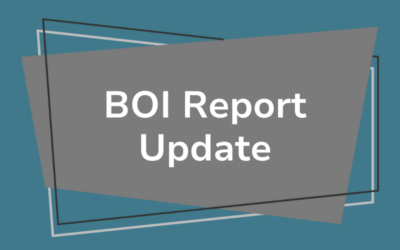If your startup will have more than one business owner, you have several choices for how to legally structure your company. In today’s post, I’ll discuss the Limited Liability Partnership (LLP), which is a type of partnership that isn’t as widely known as the General Partnership or Limited Partnership business structures. The following information will help you understand what an LLP is, how an LLP is taxed, and the basic steps for creating one.
Before we get into all that, I want to remind you that the type of business entity you select will affect just about every aspect of launching and maintaining your company.
For example:
- What you need to do to register your business with the state and tax authorities
- Which ongoing compliance tasks you must fulfill to legally operate your business
- How you distribute business income and losses among yourself and the other owners
- How you file your taxes
When choosing a business structure, it’s helpful to get advice from an attorney and accountant.
Getting to Know the LLP
A Limited Liability Partnership is a business entity that combines the tax-saving benefits of a Partnership and the liability protection benefits of a Corporation. An LLP is similar to a General Partnership in that all of an LLP’s owners are considered general partners (who typically actively participate in the company’s management). However, an LLP provides some degree of personal liability protection to all of the business partners, which is something the GP structure does not.
The amount of liability protection varies by state, and some states restrict the kinds of businesses that can form an LLP. For example, several states only offer the LLP business structure to companies in professional industries, such as doctors, attorneys, accountants, engineers, dentists, and architects. Also, some states require all partners to be licensed in the same profession. In addition, a few states do not allow businesses to form as LLPs, and several do not recognize LLPs from other states.
LLP Liability Protection
Typically, each partner in an LLP is protected from the legal liabilities and debts of the business. Unlike General Partnerships (where business owners are liable for each other’s activities), an LLP partner is also protected from the negligence, wrongdoing, or malpractice of the other partners.
However, a partner may not be protected from personal negligence or malpractice lawsuits resulting from their own actions.
Again, different states grant different degrees of liability protection.
LLP Taxation
Income Tax
The IRS considers a Limited Liability Partnership a pass-through entity, meaning it is not regarded as a separate tax entity from its owners. Therefore the entity itself does not pay federal income tax and avoids the double taxation burden of C Corporations.
What do I mean by double taxation? In a C Corporation, the company is a tax entity separate from its owners (shareholders). Consequently, the entity must pay tax on business income and report it on a corporate tax return. When a portion of business profits are paid to the Corporation’s shareholders as dividends, that money is taxed again to the shareholders on their personal tax returns at the applicable individual tax rate.
Pass-through entities, like LLPs, General Partnerships, and LLCs, distribute profits and losses amongst the company’s partners — which might be done equally, according to each partner’s ownership share, or per a different distribution calculation as documented in the partnership or operating agreement.
As I mentioned, an LLP does not directly pay federal income tax on its profits. Instead, partners report their portion of the profits and losses on their individual income tax returns and pay taxes at their individual tax rate They also must pay self-employment taxes (Social Security and Medicare) on their income from the business (partners are not considered company employees, so they do not receive paychecks from which those taxes are withheld). Generally, partners must make quarterly estimated tax payments for income and self-employment taxes.
While the LLP doesn’t pay corporate income tax, it is required to file an information return — Form 1065, US Return of Partnership Income — to report its income, gains, losses, and deductions. And it must issue a schedule K-1 to each partner to report the profits and losses paid to the individual.
Most states conform with the federal government’s classification of LLPs as pass-through entities. However, some states require them to file a partnership tax form and pay corporate tax. Also, LLPs are subject to a Franchise Tax in some states.
Payroll Tax
If an LLP hires W-2 employees, it is responsible for withholding and remitting employees’ payroll taxes, including:
- Federal income tax
- FICA (Social Security and Medicare Taxes)
- State income tax
- Local income tax
- Unemployment Tax (FUTA and SUTA)
There may be other employment-related payroll deductions and costs as well, such as workers’ compensation insurance, medical plan premiums, and retirement plan contributions.
Register For Payroll Taxes
CorpNet can quickly register your new business for state payroll taxes. Our specialists manage the process of registering your new business for State Unemployment Insurance Tax (SUI) and State Income Tax (SIT), which saves you time and money.
Registering an LLP
States have their own registration process and fees for creating a Limited Liability Partnership. I suggest connecting with the Secretary of State’s office in your state to determine the required steps and annual compliance obligations.
In addition to filing the required registration paperwork with the state, other typical startup tasks include:
- Designating a registered agent
- Obtaining an EIN (federal tax ID number)
- Opening a business bank account
- Registering for payroll taxes
- Applying for business licenses and permits
In all LLP arrangements, the partners should create a partnership agreement. While not required by state law, a partnership agreement helps to ensure all partners agree on how the LLP should be run.
A few of the critical details documented in a partnership agreement include:
- Each partner’s ownership interests
- How profits and losses should be allocated
- Management structure
- Partners’ roles and responsibilities
- Internal dispute resolution process
- What happens to a partner’s ownership interests if they pass away or leave the partnership
Register Your LLP With CorpNet
Let CorpNet handle the paperwork for you. We’ll make sure your new LLP is registered fast and with little work on your part.
Additional Considerations
Before making any decisions on business structure, it’s crucial to weigh the pros and cons with your legal and financial advisors. Some considerations include:
- Although the LLP has limited liability for all partners, each state has its own rules concerning how much liability protection partners receive.
- LLPs are relatively easy to form. Partners file a registration form with the Secretary of State (or comparable office) and obtain all the necessary licenses, permits, and insurance.
- There may be restrictions on who can form a Limited Liability Partnership. For example, some states may only allow certain types of licensed professionals to form an LLP.
- Some states do not recognize the LLP structure. Therefore, if you form an LLP in one state, you may not be able to extend its operations into another state (i.e., foreign qualify). As a result, you may have to form a different entity in the new state.
- LLPs can grow their businesses by bringing on new partners.
- All partners in an LLP have a say in the management and operations of the company.
- An LLP has fewer compliance formalities than a Corporation.
- The LLP is a pass-through tax entity, so its profits and losses flow through to its partners’ personal tax returns. It avoids the double taxation of corporations. However, it may result in a lofty tax burden for the partners depending on their situation.
Frequently Asked Questions
What Is the Difference Between an LP and LLP?
A Limited Partnership (LP) is also a type of Partnership, but it’s slightly different from an LLP.
In an LP, there are one or more general partners and one or more limited partners. The general partners have responsibility for the day-to-day management of the business and they assume unlimited personal liability for the partnership’s legal and financial debts. The limited partners are silent partners, with a financial interest or property investment in the company, but they do not get involved in actively running the business. Limited partners are not personally liable for the LPs debts.
In an LLP, typically all owners act as general partners, taking an active role in running the company. However, unlike the LP, those partners enjoy limited personal liability protection via the partnership’s registration as an LLP.
What Is the Difference Between an LLC and LLP?
Both LLCs and LLPs are business entities established by registering paperwork with the state. They provide personal liability protection to a company’s owners. LLC owners are called “members,” whereas LLP owners are called “partners.” While LLCs and LLPs are considered legal entities separate from their owners, both are pass-through entities for tax purposes.
While most states allow companies with any business purpose to form an LLC, some states only allow certain types of professionals (e.g., attorneys, accountants, physicians) to create an LLP.
Also, some states provide LLP owners with less liability protection than they do owners of an LLC.
Can an LLP Be Taxed as a Corporation?
No, unlike an LLC, an LLP may not elect to be taxed as a Corporation. Also, it is not eligible to elect to be treated as an S Corporation for tax purposes.
Do Limited Liability Partnerships Get 1099s?
Yes. If a company pays an LLP $600 or more for services in the tax year, it must issue a 1099-NEC form (Nonemployee Compensation) to the entity. Some circumstances require Form 1099-MISC instead.
Start Your Entrepreneurial Journey With CorpNet
If you’d like help registering an LLP (or other business entity) for your new company, contact CorpNet today. Our business filing experts will meticulously prepare and submit your critical formation documents so you can get your exciting venture off the ground.





